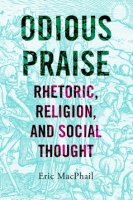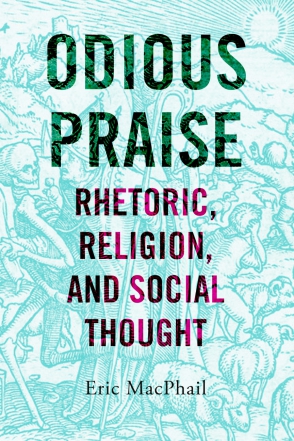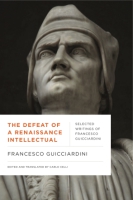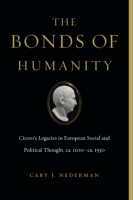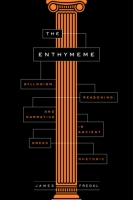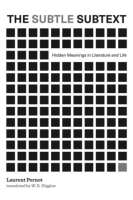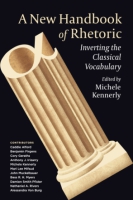Odious Praise
Rhetoric, Religion, and Social Thought
Eric MacPhail
“Readers will profit from MacPhail’s provocation as well as from the serious scholarship that underwrites it.”
- Description
- Reviews
- Bio
- Table of Contents
- Sample Chapters
- Subjects
Surveying literature from ancient Greece to Renaissance Europe, Eric MacPhail identifies a tradition of epideictic rhetoric that began with the sophists but was cultivated and employed most vigorously by Renaissance political thinkers. Presenting examples from the writings of Lorenzo Valla, Niccolò Machiavelli, Desiderius Erasmus, Michel de Montaigne, Joachim du Bellay, and Jean Bodin, among others, MacPhail shows that by inscribing a positive value to an object worthy of blame, cultural values are turned on their head. MacPhail traces the use of this technique to critique the values of the classical and scholastic traditions. Recognizing and engaging with this tradition, MacPhail argues, can reinvigorate our study of the history of social thought and reveal further the roots of modern social science.
Rigorous and lucid, Odious Praise presents a rhetoric capable of suspending and thus critiquing the values of a culture, and in doing so, it uncovers the first serious attempts at social thought and the seedbed of modern social science. It will be welcomed by scholars of Renaissance literature and culture, the history of rhetoric, and political thought.
“Readers will profit from MacPhail’s provocation as well as from the serious scholarship that underwrites it.”
“Like the odious praise it examines, the book unsettles our understanding of epideictic and its values in a productive and generative manner, and for that it should be most straightforwardly praised.”
“MacPhail uses the notion of praise (especially praise that turns to blame) as an interpretive key to explain the culture of the Renaissance, a demonstration that is both brilliant and convincing. Since the authors taken into account have been extensively studied, MacPhail builds on the results of modern scholarship: the novelty of his book is to take an unexpected and fruitful look at already known texts and also to draw attention to lesser-known sources.”
“MacPhail's provocative study will appeal to specialists of the classical tradition in early modernity, and scholars of rhetoric and the history of philosophy. In addition, it adds perspectives to our understanding of Machiavelli and Montaigne. Since the late 1990s there has been a serious revival of the study of rhetoric and the analysis of literature in rhetorical terms; this book sheds light on a subversive counter-tradition within the history of praise.”
“MacPhail is speaking to us modern scholars to look at this praise-turned-to-blame as a way to interpret the culture of the Renaissance, where by looking at comprehensively-researched texts from that time period with a set of new eyes, while also shedding more light on more obscure sources, we can now be more well-versed in the antithesis of traditional praise.”
Eric MacPhail is Professor of French and Adjunct Professor of Comparative Literature at Indiana University and editor of the journal Erasmus Studies. His books include The Sophistic Renaissance, Dancing Around the Well, and Religious Tolerance from Renaissance to Enlightenment.
Acknowledgements
List of Abbreviations
Introduction: Isocrates and the Genealogy of Odious Praise
1. Platonic Values
2. Ciceronian Values
3. Church Values
4. Religion and the Limits of Praise
Conclusion
Appendix
Notes
Bibliography
Index
Download a PDF sample chapter here: Introduction
Mailing List
Subscribe to our mailing list and be notified about new titles, journals and catalogs.
